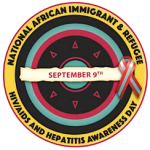A couple weeks ago, I spoke to a friend who works for the federal government. He had not worked in a month; he was on his way to missing his second paycheck. While he started this furlough envisioning it as a brief holiday of sorts, he has become despondent and concerned. Luckily, his health insurance was maintained. There are approximately 800,000 federal employees that were not getting paid in the bizarre chicken game being played by the President with Congress. 800,000 people – their families, the businesses they usually use, the bills they have that need to be paid. Entering the second month of the government shut down, I was left thinking “WTF – is this real?” Even thought the federal government has just started back up, we now have a 3 week reprieve before the chicken game starts again.
The news makes my head hurt. The combination of the 24-hour news cycle and social media present a cacophony of voices about what’s going on today, what we should be concerned about and how we see a problem. I teach agenda setting in my courses, where the news media determines the frame that issues are presented but it’s bizarre to live through it so vividly.
Rapper Cardi B. has become the center of conservative attacks on social media for her (IMO) hysterical take on the federal shutdown. If you haven’t seen it, it’s worth checking out. We have seen that when entertainers and celebrities have left-leaning political views, the media and conservatives critique them mercilessly, as if entertainers and celebrities are not tax payers with the right to speak their mind.
The federal government shutdown is endemic of a troubled system. When I was a kid, I believed in the system of checks and balances in the United States Constitution. Through the years, I have seen how reluctant people are to give up power, to meaningfully compromise, how losing face is more important than getting anything done.
The Administration claims that the there is “impending danger” on the Southern United States border. I live on the border and – like the vast majority here – I recognize that there is no danger to the United States with illicit border crossings at the lowest since the early 1970s. Rather, the profile of the typical migrant are now families including children – families often being endangered by their journey to a new life, one they hope is safer than the homes they fled.
But it’s not.
The other day I was driving and the car in front of me had a bumper sticker which read “Heaven has a wall/Hell has no borders and accepts everyone.” This notion of the United States as a paradise is a powerful propaganda, one that dates back to the country’s early years and its Manifest Destiny doctrine. This idea of wealth still looms large in people’s minds, even as they feel the need to build walls to keep others out.
Today, migration has emerged as a major global issue. UNAIDS has recognized the impact of migration on healthcare and HIV. In the 2018 report People on the Move, the Joint Programme called on Member States, including the United States, to look at “laws, policies and practices that prevent migrant and mobile populations, as well as refugees and crisis-affected populations from accessing life-saving treatment, with a particular focus on key populations.” Just a couple months ago, the United States sent the National Guard rather than medical care, immigration attorneys and social workers to the Tijuana border.
The federal shutdown is connected to our feelings about the borders, about people different from us, about the economic insecurity many of us experience. It is about not being educated about the history of United States involvement in other countries. [Though for some of us, we are painfully aware of how we got here.]
We pay taxes for a government that we believe will do the things we cannot. We rely on the government for everything from monitoring disease to inspecting the food supply to provide running water and waste disposal and electricity. And a thousand other things we take for granted. Yet for 35 days, the federal government was not functioning.
In the HIV community, we know from experience our voice matters. That we are powerful together working. That health is a human rights issue and therefore requires a human rights-based approach to be effective. In his introduction to Brother to Brother, the late poet and activist Essex Hemphill wrote, “We are communities engaged in a fragile coexistence if we are anything at all… What is most clear for black gay men is this: We have to do for ourselves now, and for each other now, what no one has ever done for us.” While he’s directing this to Black gay men, I think it also applies to the broader HIV community.
I am writing this because we need to expand the conversations that we are having in HIV. Our conferences and meetings continue to focus largely on pills and adherence to the exclusion of issues like racial justice, sexual and reproductive rights, immigration and poverty. I am concerned that we have leaders and organizations who do not believe they should bring these larger conversations to the HIV community, as if we are unaffected by the federal shutdown or immigration reform.
800,000 federal employees, the businesses they used to use and the bills that need to be paid would say otherwise.








Comments
Comments